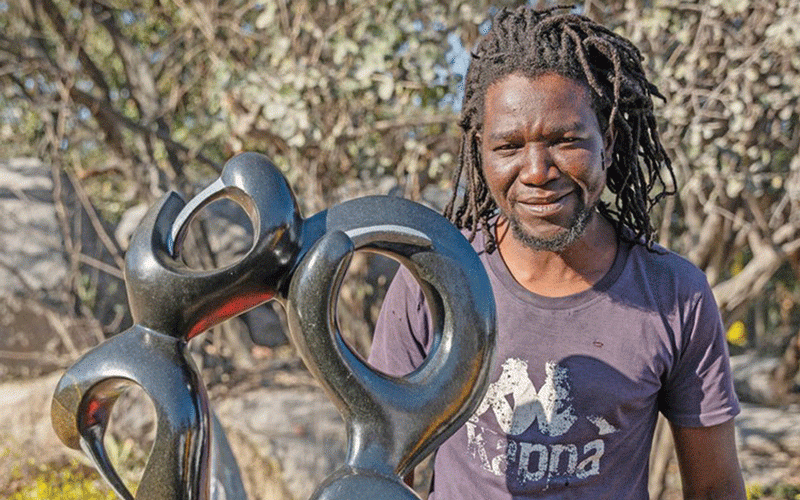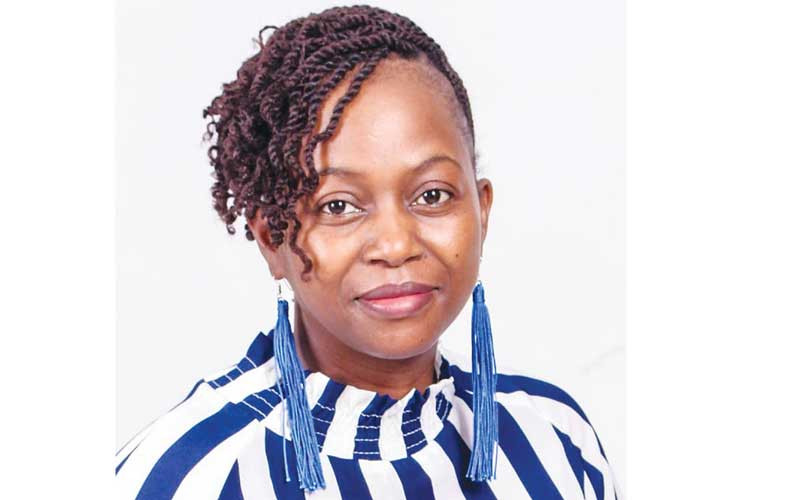
WHEN Misheck Mubaiwa joined the Chitungwiza Arts Centre in 2004, his rural background in Chiweshe, Mashonaland Central, continued to shape his scope of imagination in his career as a stone carver. Accordingly, Mubaiwa has developed brilliance in embossing the green opal and spring stones to provide lighter moments for various situations in life.
He targets happy moments and entrepreneurial activities and has a story to tell on each one of them. His display garden features sculpture works like Open Heart, What Comes Around Goes Around, Endless Way, Cattle Yoke Ropes, the award-winning Water is Life and the exceedingly intricate Whirl Wind. Mubaiwa’s breathtaking Water is Life charmed the Mzansi-based Pathfinder Ubuntu Non-Profit Company adjudicators who resultantly awarded him and included him among the bestselling 100 statutes that pronounced the importance of water. Resultantly, the South African curators Pathfinder Ubuntu Non-Profit Company channelled part of the sales proceeds of the chosen 200 pieces towards the drilling of boreholes and gazebos at the Chitungwiza Arts Centre.
Mubaiwa described his Open Heart carving as a crest for affection, adoration and desire for good. He further narrated that he has it in mind that it will be suitable for installation in wedding gardens and at business centres.
“What Comes Around Goes Around signifies lots of things in life that we may not fully understand and usually a good beginning always makes a good ending. We need to prepare our lives in a stronger and honest way in order to stop downfalls that come as a result of bad planning or unfair manipulations.
“Water is Life is self-explanatory as the creative mindset was our vision for the need to have access to clean water. The Whirl Wind — Chamupupuri talks about the storms of life, the difficult times should make us think positively about how we may come out of problems. This neutral and persuasive idol is perfect for a restorative approach to the treatment and prevention of drug and substance abuse.
“The Cattle Yoke Ropes remind me of the time when I was still a young boy in Chiweshe. We used to wake up early in the morning to yoke the oxen for ploughing in our fields. The hide ropes that are used to tie the ox necks to the yoke are in Shona called Zvitirobho/Cattle Yoke Ropes. The ropes were often used to abusively discipline children for waking up late for school or going to the fields.”
The spiral carvings are not unique to Mubaiwa. Prominent sculptor Elvis Mamvura, who was mentored by his father to carve on white opal, has his garden separated to Mubaiwa’s by a huge rock and one would see Mamvura’s garden to the Chitungwiza Arts Centre. Mamvura has since taken his stone carving story to the University of London where he conducted workshops and exhibitions. Mamvura has also been to China and Germany with his winding and spiralling carving which he calls Endless Journeys.
Back to Mubaiwa. He says his Endless Way figurine of walking feet shows how people may unknowingly embark on a journey.
- Female politicians complain over sexual harassment
- GBV holding back women’s political participation
- GBV holding back women’s political participation
- Edutainment mix: The mbira in the cosmos of development
Keep Reading
“When one starts something, it may end up continuing for a long time because of its success or other things that may be stumbling blocks to a smooth run. The Endless Way speaks and resurrects people to develop resilient structures or solutions that may put to a stop several constantly recurring problems,” Mubaiwa said.
The artist is of the opinion that unemployment can be eased through developing creative spaces. One such space is the Chitungwiza Arts Centre which houses more than 250 artistes.
“Art involves all generations and communicates effectively while creating a memory bank of a people’s history. As visual artists we are appealing to the government to capacitate visual artists so that they best fit into teaching and training in schools,” he said.







